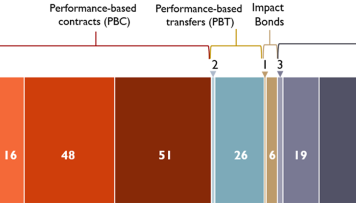Related

Dissemination
Results-Based Financing Case Studies
Dissemination
Learning from 15 Years of GPRBA Experience
March 31, 2010 |Feature Stories
Output-Based Aid: Improving Service Delivery to the Poor
June 29, 2018 |Feature Stories
Maximizing Finance for Development through RBF
October 25, 2018 |Feature Stories
Results-Based Approaches to Development Finance
Output-Based Aid: Lessons Learned and Best Practices
Development practitioners are acutely aware of the need to find more effective ways to improve basic living conditions for the poor, as t

A Guide for Effective Results-Based Financing Strategies
GPOBA was initially founded to implement output-based aid, targeting low-income households and communities.



